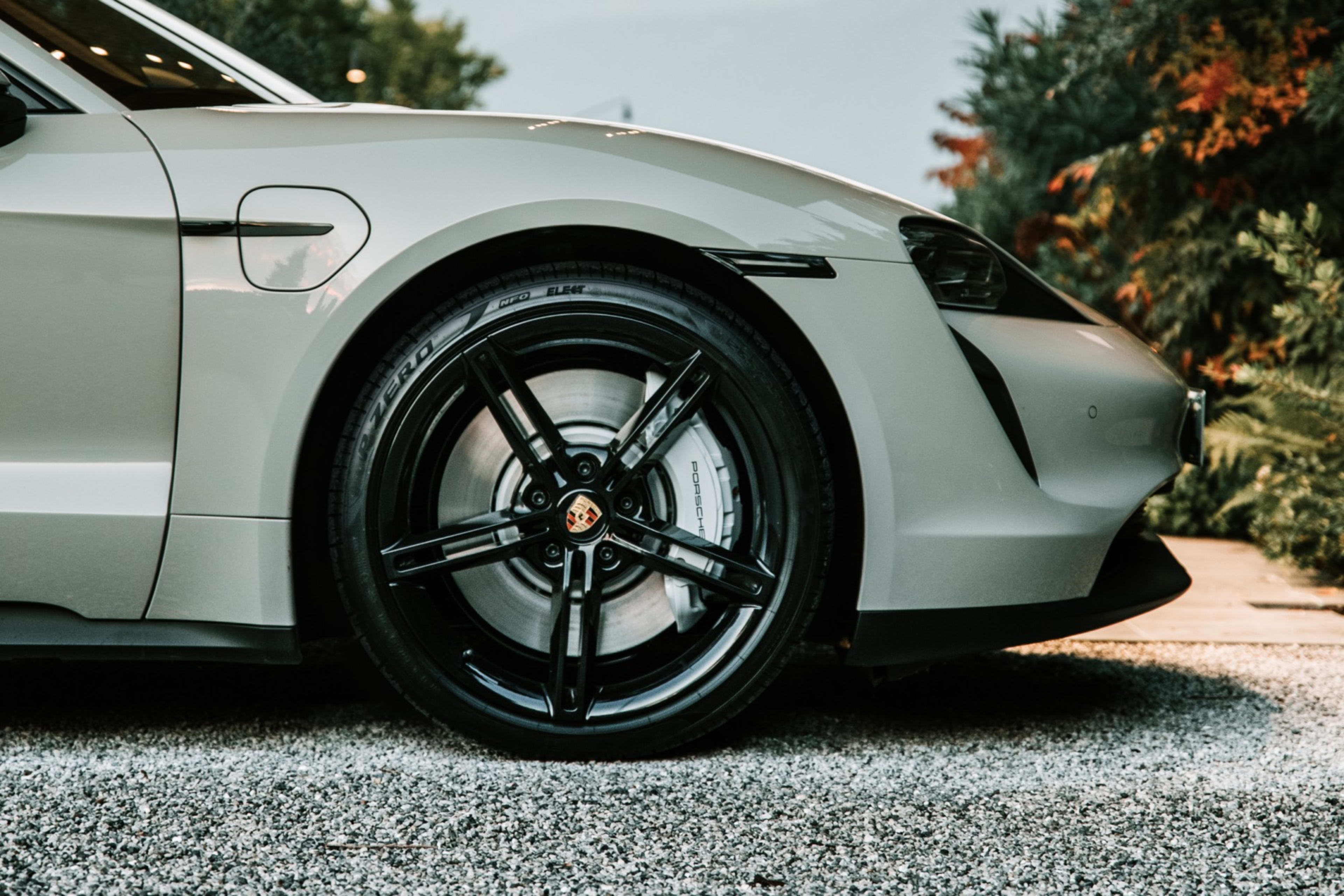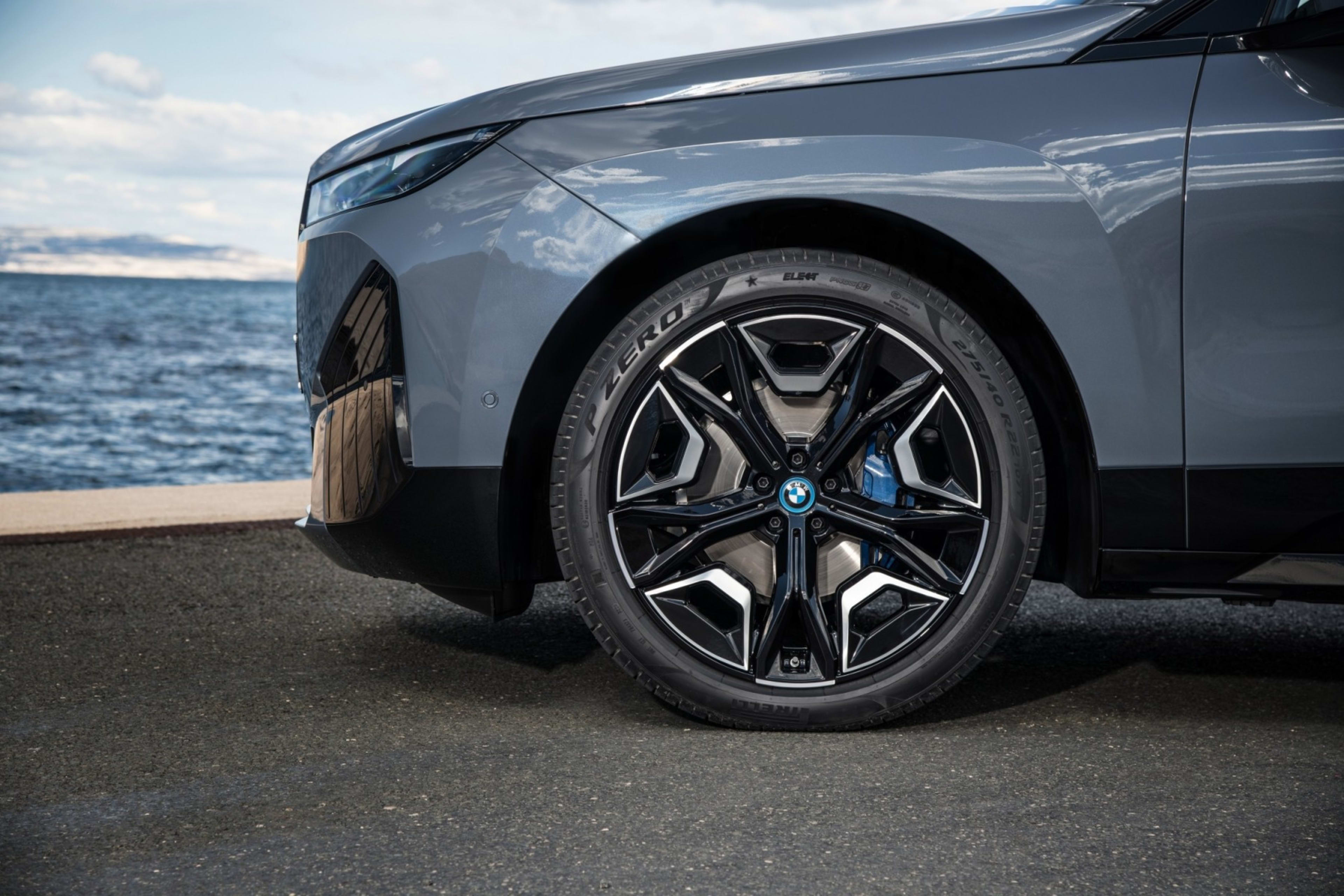Tire Buying Guides
Do electric vehicles need different tires?

Best price guarantee
Tire replacement coverage
24/7 roadside assistance
Easy returns
Tire Buying Guides

Electric vehicles are changing the automotive industry and transportation as a whole. Despite how similar EVs are to gas-powered cars on the surface, this change has forced manufacturers to rethink every aspect of the vehicle, including its tires.
Still, there are some significant differences between EVs and their counterparts with internal combustion engines. When you buy an electric automobile, you must understand the importance of proper EV tire selection.
Technically speaking, you can put any tire on an EV like a high-performance Tesla. Is it a good idea? No.
Tire engineers take the time to figure out everything essential to a specific vehicle and formulate tires perfect for it.
That’s nothing new, though. Tires have always been made to best match specific platforms. You know not to use truck tires on an economy car. The aggressive tread, wide contact patch, and sheer mass of the tire would bog an economy car down in more ways than one.
What makes an EV tire so different from the tire you want to have on a compact ICE (Internal combustion engine) car? Here are a lot of factors that engineers take into account when developing ev-specific tires.
In combination with the limitations of sizes for an application, the above factors all come together to create a tire unlike those used in traditional fuel-powered applications. Ignoring those demands and rolling on a tire that isn't ev-specific can pose some serious issues.
The most apparent problem a regular tire can’t deal with properly is traction during acceleration and braking. While many performance tires can handle these forces, high-performance tires and their tread patterns aren’t designed with road-noise as a top consideration. Rolling resistance is typically increased rather than decreased, which is detrimental to efficiency. Therefore, you want to select a tire that balances all of these aspects when driving an EV.
And don’t worry, you’re not stuck with just one type of tire for electric vehicles. Touring, economy, performance, and winter tires are available for EV applications.

It’s important to note that, while an EV tire is designed with those platforms in mind, it doesn’t limit them solely for use on EVs. You can run an EV tire on your ICE vehicle. You might even find the reduced rolling resistance and road noise to be desirable.
But, it doesn’t make sense to spend your money on an EV tire for a vehicle that runs on gasoline, or diesel for that matter. That’s because the added structural support and enhanced grip for instant torque are not necessary for gas-powered cars. In other words, you’d be spending your money on features that you simply don’t need.
When you look at factors that engineers need to overcome, such as instant torque and additional weight, it’s easy to conclude that an EV wears tires more rapidly than a combustion-driven vehicle due to instant torque and increased weight.
A detail people often overlook is traction control. This system is often associated with maintaining stability on wet or snowy roads, but that’s only a part of its job. Traction control also helps to prevent tires from slipping when a driver accelerates. As with any other vehicle, this helps minimize tire wear.
So long as you select the proper set of tires and practice good driving habits, you won’t notice much difference in how an EV or an internal combustion engine-powered vehicle wears tires.
But what if you run a tire that’s not intended for use on an EV? Then you might experience some issues. Because standard tires don’t usually accommodate the weight and extra torque, they may wear down more rapidly on these vehicles. Factors such as the tire’s load rating and tread pattern can certainly help counter this, but engineers do take power and weight into consideration for good reason.
A topic often brought up is the fact that electric vehicle owners experience rapid wear of tires. Some state that a set of EV tires lasts only about 20,000 miles when tires on internal combustion vehicles last as long as 60,000 miles (or longer). To be completely honest, this is a genuine factor, but it ultimately comes down to the tires you select and practicing proper tire maintenance.
One thing to bear in mind is that many of the short-lived EV tires are original equipment. In any case, these stock OE tires typically provide subpar results. Many people also don’t take the time to monitor tire pressure, switch tires during seasons, or are mindful of rotation.
Of course, as technology develops, you will see tires last longer and longer. On average, a set of EV tires should last at least 45,000 to 50,000 miles. However, proper tire selection and maintenance should allow people to get their EV tires to last almost as long as regular passenger car tires.
The short answer is no. You generally don’t have to rotate EV tires more frequently. Electric vehicle manufacturers often recommend rotating your tires about as frequently as you would with any other vehicle—every 7,500 miles or so.
You might find recommendations to rotate the tires in shorter intervals of around 6,000 miles in some cases. Whether or not this is more frequent depends on the routine you practice with traditional passenger vehicles.
It’s a common practice to rotate the tires during every oil change. Depending on the vehicle, that can be anywhere from 3,000-10,000 miles. Since there is no oil change with EVs, your maintenance routine will change, which can mean rotating the tires more or less often.

So, what are the best tires for EVs? As with any other type of vehicle, it all depends on the application and your driving habits. Luckily, we can help you find the perfect fit for the following vehicles:
If you don’t own any of these EVs, don’t worry. We have a comprehensive collection of EV-compatible tires. Don’t be afraid to reach out to our service centers for help with tire selection, either. Our reps can work with you to select the tire that best suits your needs from the following offerings:
The key takeaway from this discussion is that proper EV tire selection and maintenance are straightforward. Many rumors and concerns surface because of EVs’ nature, but various factors come into play with any type of car or truck.
As with any other vehicle, you want to make sure you select the tire that best matches the application, and we’re more than happy to help you with that. From there, you just need to practice proper tire maintenance, which is the same as it is with anything else.
Search By